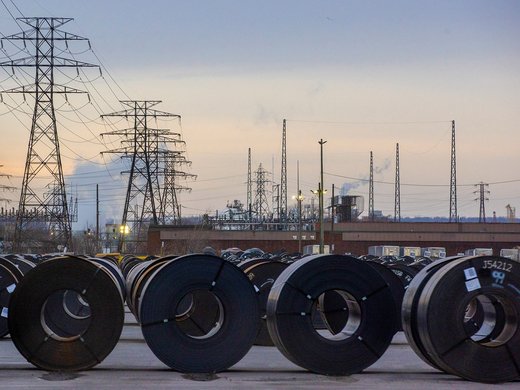To get a sense of what is ahead for technology, climate policy and trade, we asked CIGI fellows: “What will surprise us most in 2024?”
Joel Blit, CIGI Senior Fellow
If 2023 was artificial intelligence’s (AI’s) public unveiling, 2024 will be the year when it begins to become embedded in the fabric of society. To be sure, AI will not immediately live up to the hype: history teaches us that the journey from technological novelty to ubiquitous adoption is not a sprint but a marathon, spanning decades.
However, AI is different from past disruptive technologies such as the steam engine, electricity or computers in that much of its adoption will happen organically, without the need for top-down corporate strategies or large capital investments. The democratization of AI has resulted in hundreds of millions of individuals experimenting with the technology and sharing innovative applications within their personal and professional circles. As AI becomes embedded in productivity software such as Word and Excel, as many as a billion students and workers will de facto be adopting it.
If 2023 was artificial intelligence’s public unveiling, 2024 will be the year when it begins to become embedded in the fabric of society.
This could be the year that everyone gains a devoted artificial assistant that can assist with everything from planning a trip to preparing their taxes. AI may even begin to transform sectors such as health, education and law that have barely changed in more than a century.
There are, of course, numerous other technologies on the horizon: collaborative robots, the Internet of Things, quantum technologies, fusion and genomics, to name a few. But these are early in their development and adoption. For now, the only real game in town is AI, but what an exciting game it is!
Simon Dalby, CIGI Senior Fellow
Late in 2023, the twenty-eighth Conference of the Parties (COP28) to the UN Framework Convention on Climate Change in Dubai ended with the usual confrontations over the wording of the final statement. But whether the rhetoric is of phase out or phase down, or abated or unabated emissions, what is now no longer in doubt is that the world needs policies to move on from coal, oil and gas.
The fossil fuel corporations, and states dependent on their revenue, will no doubt continue their furious opposition to attempts to curtail their activities, but the writing is now on the proverbial wall: time is up. Their decline won’t come quickly enough for climate activists, or those caught in the way of the extreme events of the next few years, but this COP marked a surprising rhetorical turning point where, despite, or perhaps because of, the dominance of fossil fuel companies in the process, the focus shifted from emissions to fuels.
What is now no longer in doubt is that the world needs policies to move on from coal, oil and gas.
As such, climate politics has significantly moved from tackling matters as a pollution problem writ large to focusing on the practicalities of building new energy systems. This is welcome progress that can be built on in 2024.
Henry Gao, CIGI Senior Fellow
In 2024, the biggest surprise for China watchers will likely be the first negative growth year for the giant trade juggernaut after many years of phenomenal growth.
Last year, China barely registered any growth in trade, and if you look closer at the numbers, you can see that China’s trade with traditional export destinations in the West has already declined, while most of its trade growth came from trade with Russia, Africa and other emerging markets along the Belt and Road Initiative. As the profit margins are much lower for trade with these countries, Chinese exporting firms will find 2024 to be even more difficult. Many of them will struggle — or not survive — just like many firms in 2023.
This does not mean that the wolf warrior-style diplomacy is over, but with a languishing domestic economy, it will be harder for China to weaponize trade.
The silver lining to this bleak outlook is that China will become more amenable in its trade relationships. Again, this is a trend we already observed in 2023, when China started to remove many of its trade restrictions on Australian imports. This does not mean that the wolf warrior-style diplomacy is over, but with a languishing domestic economy, it will be harder for China to weaponize trade.
Hopefully, this will make it easier for the rest of the world to trade with China and avoid the lose-lose scenario nobody wants.



